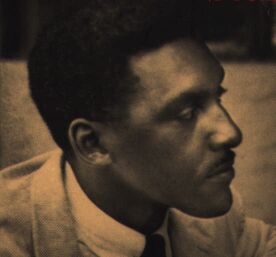

For more than 50 years, Bayard
Rustin was a strategist and activist in the struggle for human rights and
economic justice. Born in 1912, he grew up in
Raised as a Quaker, Rustin
began his lifelong career as a social and political activist in 1937, when he
moved to
In 1947, under the auspices of
the FOR and CORE, Bayard Rustin helped plan the first "freedom ride"
in the South, challenging Jim Crow practices that had been made illegal by a
1946 Supreme Court decision outlawing discrimination in interstate travel. Known
as the Journey of Reconciliation, riders engaged in direct protest by
intentionally violating the segregated seating patterns on Southern buses and
trains. Along the way, they were beaten, arrested and fined. Arrested in
In 1956, at Mr. Randolph’s
request, he was granted temporary leave from his position to assist Dr. Martin
Luther King, Jr. in the early days of the Montgomery Bus Boycott. His extensive
background in the theory, strategies, and tactics of nonviolent direction action
proved invaluable to Dr. King.
Mr. Rustin organized the Prayer
Pilgrimage for Freedom in 1957, The National Youth Marches for Integrated
Schools in 1958 and 1959, and was the Deputy Director and chief organizer of the
1963 March on
Mr. Rustin had a long
involvement with refugee affairs. As a Vice Chairman of the International Rescue
Committee, he traveled the world working to secure food, medical care,
education, and proper resettlement for refugees. His visits to
As Chairman of the Executive
Committee of Freedom House, an agency which monitors international freedom and
human rights, Mr. Rustin observed elections in
At the time of his death, Bayard Rustin was Co-Chairman of the A. Philip Randolph Institute and President of the A. Philip Randolph Educational Fund. He was Chairman of Social Democrats USA, a member of the United States Holocaust Memorial Council, and a life member of Actors' Equity. He also served on numerous boards and committees, and was the recipient of more than a dozen honorary doctorates.
©2005 by Kenny Smith
http://www.rustin.org/biography.html